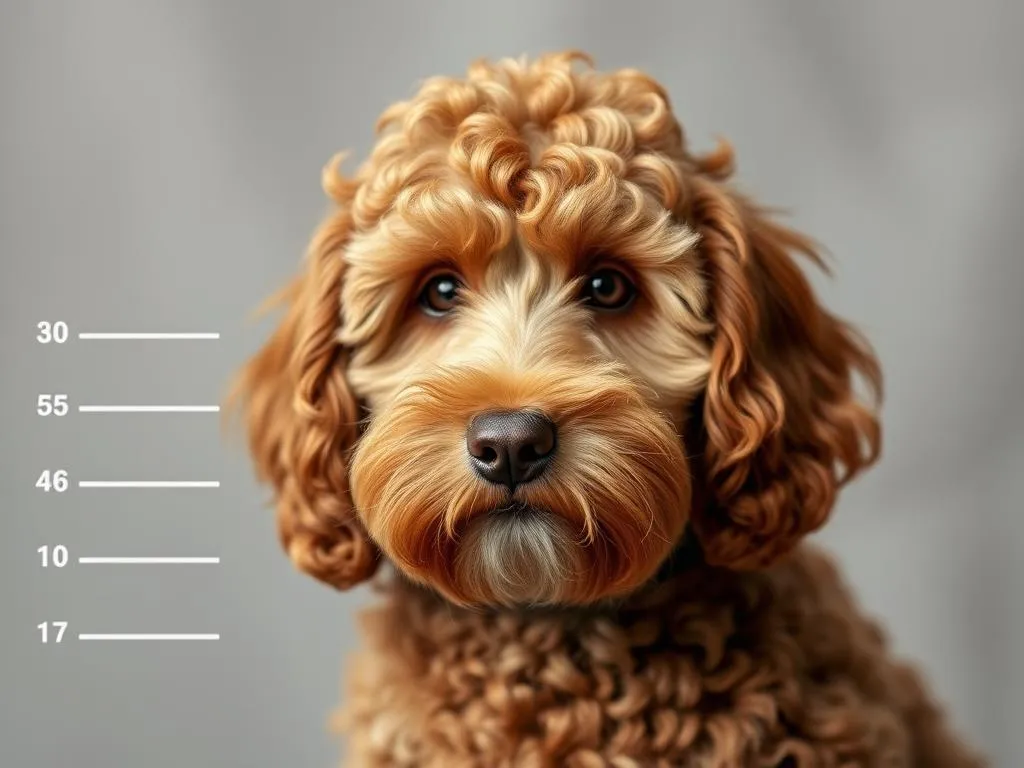
Introduction
Health care is paramount for ensuring that our furry companions live long, happy lives. This is especially true for specific breeds like the Cockapoo, a delightful crossbreed between the Cocker Spaniel and Poodle. The Cockapoo is adored not only for its affectionate nature but also for its charming appearance. Understanding the size, weight, and growth patterns of this breed is essential for maintaining their health and well-being.
In this article, we will provide a comprehensive guide on the Cockapoo size weight growth chart while offering valuable health care tips to help owners ensure their pets thrive at every stage of life.
Understanding the Cockapoo Breed
Breed Characteristics
The Cockapoo boasts a unique and appealing appearance. With a coat that can range from curly to wavy, they often come in various colors, including black, apricot, chocolate, and cream. Their ears are typically long and floppy, reminiscent of their Cocker Spaniel lineage, while their eyes are expressive and friendly, contributing to their endearing personality.
In addition to their physical traits, Cockapoos are known for their upbeat temperament. They are friendly, intelligent, and eager to please, making them excellent companions for families and individuals alike. Their sociable nature means they generally get along well with children and other pets, making them a popular choice for many households.
Size Variations
One of the fascinating aspects of Cockapoos is their size variations, which depend on the size of their Poodle parent. Cockapoos can be classified into three main categories:
- Standard Cockapoo: Typically weighs between 19-30 pounds and stands about 15 inches tall.
- Miniature Cockapoo: Generally weighs between 12-18 pounds and is around 10-14 inches tall.
- Toy Cockapoo: The smallest variety, weighing around 6-12 pounds and standing about 10 inches tall or less.
Genetics play a significant role in determining the size of a Cockapoo, as the size of both parent breeds will influence the offspring’s growth.
Cockapoo Size and Weight Growth Chart
Growth Stages
Understanding the growth stages of a Cockapoo is essential for tracking their development. The key growth stages are:
- Puppy Stage: 0-6 months
- Adolescent Stage: 6-12 months
- Adult Stage: 1 year and older
Size and Weight Expectations
Here is a detailed Cockapoo size weight growth chart to provide clarity on what to expect at different stages of growth:
| Age Stage | Average Weight (lbs) | Average Height (inches) |
|---|---|---|
| Puppy (0-6 months) | 2-12 | 8-14 |
| Adolescent (6-12 months) | 10-20 | 10-15 |
| Adult (1 year +) | 6-30 (depending on type) | 10-15 (depending on type) |
During the puppy stage, Cockapoos typically experience rapid growth. By the time they reach adolescence, their growth starts to slow down, and they begin to fill out and gain muscle. By the time they reach adulthood, they should have reached their full height and weight, although individual variations will occur based on genetics and size category.
Factors Influencing Growth
Several factors can influence the growth of a Cockapoo:
- Genetic Factors: The size and health of the parent breeds play a crucial role in determining the size of the puppies.
- Nutrition: A balanced diet rich in nutrients is vital for proper growth. Puppies require more calories and protein than adult dogs to support their rapid growth.
- Exercise: Regular physical activity is important for healthy muscle development and maintaining a healthy weight.
Health Considerations for Cockapoos
Common Health Issues
Like all breeds, Cockapoos can be prone to certain health conditions. Some common health issues to be aware of include:
- Hip Dysplasia: A genetic condition that affects the hip joint, potentially leading to arthritis.
- Eye Conditions: Such as cataracts and progressive retinal atrophy, which can affect their vision.
- Allergies: Due to their Poodle lineage, they may be more susceptible to skin allergies and sensitivities.
Regular veterinary check-ups are crucial for early detection and management of these potential health problems.
Nutrition and Diet
Providing a well-balanced diet is essential for the health of your Cockapoo. Their nutritional needs will vary based on their size and age. Here are some recommendations:
- Puppy: High-quality puppy food that is rich in protein and DHA for brain development.
- Adult: Transition to adult dog food that maintains a balanced nutrient profile, focusing on protein, fats, and fiber.
- Weight Management: Monitor portion sizes based on their activity level and metabolic needs.
Always choose high-quality dog food that meets or exceeds AAFCO (Association of American Feed Control Officials) standards.
Exercise Requirements
Cockapoos are energetic and playful dogs that require regular exercise to remain healthy. The amount of exercise needed will vary based on their size and age:
- Puppies: Short play sessions throughout the day to avoid overexertion.
- Adolescents: Daily walks and interactive playtime to channel their energy.
- Adults: At least 30-60 minutes of exercise each day, including walks, fetch, and mental stimulation activities.
Incorporating a mix of physical and mental activities will help keep your Cockapoo happy and healthy.
Monitoring Growth and Weight
Regular Weigh-Ins
Keeping track of your Cockapoo’s weight is crucial for monitoring their growth and overall health. Regular weigh-ins can help you notice any changes that may indicate health issues. To weigh your Cockapoo effectively:
- Use a digital scale that can accommodate pets.
- Weigh yourself first, then weigh yourself holding your Cockapoo.
- Subtract your weight from the total to find your pet’s weight.
Recognizing Weight Issues
It’s vital to recognize signs of underweight and overweight Cockapoos.
- Underweight: Visible ribs, lack of energy, and a thin appearance.
- Overweight: Difficulty in feeling ribs, decreased energy, and an inability to maintain normal activity levels.
Improper weight can lead to various health risks, including diabetes, joint issues, and heart disease.
Adjusting Care Based on Growth
As your Cockapoo grows, their diet and exercise routines may need adjustments.
- Diet: Gradually transition from puppy food to adult food as they approach their first birthday.
- Exercise: Increase the intensity and duration of activities as they develop strength and stamina.
Consulting with a veterinarian for personalized care and recommendations is always beneficial.
Grooming and Maintenance
Grooming Needs
Regular grooming is vital for maintaining the health and appearance of your Cockapoo. Their coat can range from curly to wavy, requiring different grooming frequencies:
- Curly Coats: Require more frequent grooming (every 4-6 weeks) to prevent matting.
- Wavy Coats: May need grooming every 6-8 weeks.
Brushing your Cockapoo at home every few days will help maintain a healthy coat and reduce shedding.
Dental Care
Dental hygiene is often overlooked but is crucial for your Cockapoo’s overall health. They can be prone to dental issues, so consider the following tips:
- Brush your Cockapoo’s teeth regularly with dog-specific toothpaste.
- Provide dental chews to help reduce plaque and tartar buildup.
Regular Health Check-Ups
Routine veterinary visits are essential for keeping your Cockapoo healthy. Key vaccinations and preventive care to consider include:
- Core vaccines (rabies, distemper, parvovirus).
- Flea and tick prevention.
- Regular health screenings for early detection of health issues.
Conclusion
Understanding the size, weight, and growth patterns of your Cockapoo is essential for providing the best care possible. Proper health care, nutrition, exercise, and grooming contribute significantly to your dog’s quality of life. As responsible pet owners, staying informed and proactive about your Cockapoo’s health will ensure they lead a happy, healthy life by your side.









